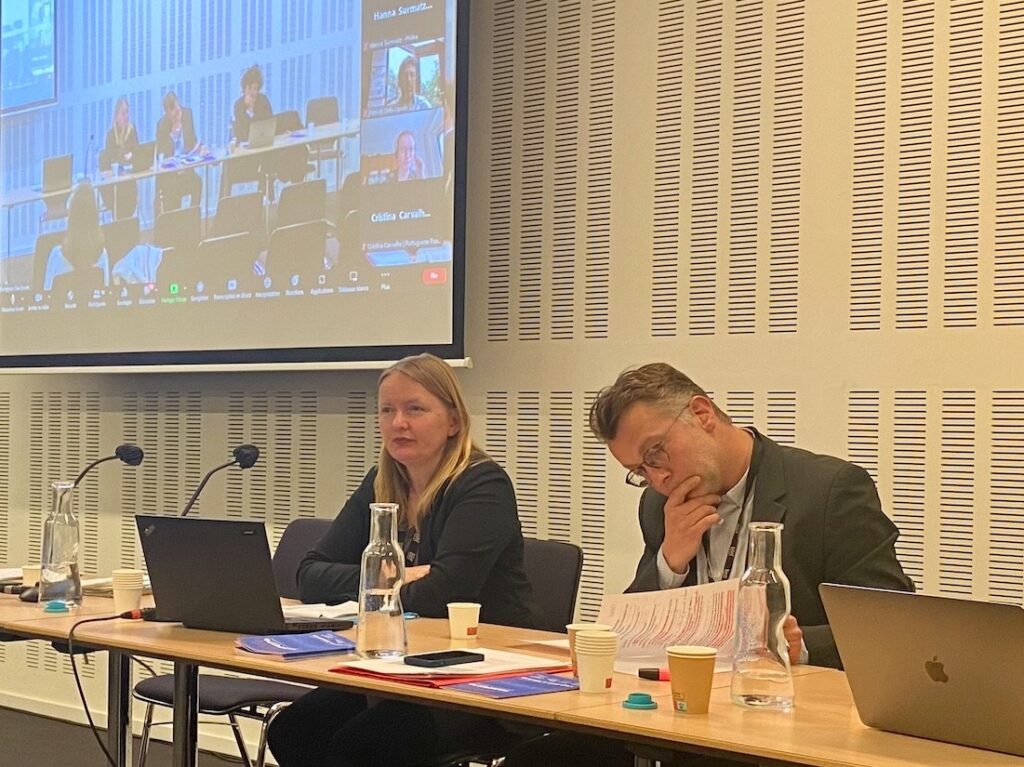Philanthropy and wider social economy make a strong case for co-shaping the future of Europe

Fundación ONCE, together with Philea staff, made a strong case for philanthropy and its important role in co-shaping the future of Europe alongside other social economy actors at last week’s “Social Economy, the Future of Europe Days”, held in Strasbourg from 5-6 May and hosted by the City of Strasbourg.
For Miguel Angel Cabra de Luna, Fundación ONCE and Hanna Surmatz, Philea, the Strasbourg days had already kicked off on 4 May with the in-person annual meeting of Social Economy Europe. Jointly representing Philea as a board member of Social Economy Europe (SEE), they were encouraged to see Commissioner Schmit and the Mayor of Strasbourg making the case for Social Economy, including recognising all its different actors such as social enterprises, mutual societies, co-operatives, associations and foundations as the backbone and the key driver of the EU Social Economy Action Plan. Building a strong social economy can also help rebuild Ukraine in the future.
The Strasbourg event, which can be considered as the most important EU social economy summit of 2022, gathered over 2000 participants from all over Europe and other regions of the world, and was organised in the framework of the French Presidency of the Council of the EU, with a key involvement of the city and euro-metropolis of Strasbourg, the French Government, Grand Est Region, Alsace, the European Commission, the European Economic and Social Committee (EESC), and the Committee of the Regions.
During the opening of the Social Economy Days, Valdis Dombrovskis, Executive Vice-President, European Commission, stressed that the potential of social economy actors, including foundations, has not yet been fully used to drive a sustainable recovery. He said that the EU is working to ensure that measures to address this are included in the Social Economy Plan. Commissioner Schmit encouraged us by stating “The Social Economy Action Plan issued by the European Commission now belongs to all of us – and especially those that are at the forefront to implement it, the social economy actors: social enterprises, co-operatives, mutual societies, associations and foundations and their respective networks.”
When it comes to interpretation and implementation, this must be done by national actors and networks who should develop training programmes and engage with their members to implement the plan at national level. Philea will ensure to follow this encouraging development and spread the word at national level. Social economy is part of all different EU portfolios, and social economy has become a fully-fledged ecosystem in its own right. Next year the European Commission will present recommendations also on legal frameworks and recognition.
At the Strasbourg event, Philea co-organised a session with key partners on the European Parliament report on a European Statute for Associations which entails a proposal for a European legal form as well as minimum standards for the national level. Philea engaged around the file with the European Commission, who announced it will soon respond to the report.
Fundación ONCE and Philea also actively participated in the conference at two different sessions organised by Social Economy Europe:
(i) The Transition Pathway for the Social Economy
This session was set up as a brainstorming exercise among social economy actors to commit to different ways to the social economy transition pathway. Maria Tussy, European Programmes Director, Fundación ONCE, stated that European philanthropy is already playing an important role for a more equitable and sustainable world in “building back better” and fostering greater resilience and well-being. However, a better policy environment could trigger even more engagement. Foundations are collaborating among each other and with different partners to work towards the green transition. In this context, she also encouraged all participants to continue feeding into this exchange by attending the upcoming Philea Forum 2022, which will take place this year from 30 May to 1 June in Barcelona.
Philea referred to its different Thematic Networks of foundations active in green, social and research fields among others and to the European Philanthropy Coalition for Climate, which aims to mobilise the European philanthropy sector to address climate change as a cross-cutting and societal crisis. Fundación ONCE made a strong case for upskilling and reskilling employees and employers in our sector in view of the digital transition, with a focus on people with disabilities.
(ii) The war in Ukraine
Ukrainian organisations participating in this session welcomed the approach to bring back dignity to Ukrainian people. The representative from Fundación ONCE, Maria Tussy, participated as a panellist in the session and presented the different actions that ONCE is doing as a response to the war, in particular supporting Ukrainian migrants with disabilities in Spain and in other countries. Hanna Surmatz of Philea referred to the integrated online portals PhilanthropyForUkraine.eu and NGOforUkraine.eu.
There were different opportunities to stress that doing philanthropy across borders should be easy, but old and new stumbling blocks exist. Philea is very happy to see that the EU Social Economy Action Plan makes concrete proposals to help remove the legal obstacles impeding philanthropic organisations’ ability to operate (also across borders) in the Single Market.
On 6 May, Deputy Director General Hubert Gambs, DG Grow, along with key sector representatives, officially launched the Social Economy and Proximity Skills Alliance, a joint declaration for the upskilling and reskilling of social economy and proximity employees and entrepreneurs supported by over 90 key stakeholders, including Philea.
Read Social Economy Europe’s summary of the Summit.
Contact

